Whether they were newly hatched companies or enterprises needing a little help getting to the next level, competitors in the 2017 Food+City Challenge Prize are still going strong. We checked in with several finalists to hear about their progress.
Refrigeration is an invention of the supply chain. You can’t safely transport perishable food without it (unless you employ centuries-old preservation tactics like salt curing or pickling). But in the 100 years since refrigeration technology was invented, it hasn’t changed much, and it almost always requires electricity to work.
In many developing countries, electricity is not assured, and many people suffer from food insecurity because they can’t save or preserve enough food. Nearly half of the produce grown in Africa goes to waste before it reaches the consumer. Evaptainers, a Boston- and Morocco-based startup, has reimagined refrigeration technology and is bringing it to those who need it most.
Evaptainers’ refrigeration systems don’t run on electricity. Instead, they use sunlight and water. A collapsible box, small enough to sit on a countertop, cools food the same way humans cool themselves — through evapotranspiration. In other words, when water evaporates, cooling occurs.
This simple yet revolutionary technology has been garnering lots of attention and gaining traction. Following the capital infusion that came with winning the gold prize at the 2017 Food+City Challenge Prize, the company went on to win more awards: One award at the pitch competition Foodbytes! in San Francisco and a United Nations innovation award at the Seeds and Chips global summit in Milan. They have also been featured in Ag Funder News, The Boston Business Journal and TechCrunch. Their acceleration continues, with support from LAUNCH Food and funding from USAID, and they are finalizing the production of 400 prototypes slated for a field trial in Morocco this summer. A commercial launch is likely in 2018.
In addition to vital funding, a key result from their experience at Food+City’s Challenge Prize has been relationships with other startups.
“We met startups working on different aspects of food and food waste and have learned so much from our conversations with them about the arduous yet fruitful process of growing a small social impact business,” says chief strategy officer Serena Hollmeyer Taylor. Starting a company is often a struggle, as Prize competitors know. The opportunity to interact with others going through similar challenges, who can share knowledge and lessons learned, is a powerful outcome of Prize.
Evaptainers‘ electricity-free refrigeration device, made especially for use in developing countries where the electricity grid is unreliable. Using evapotranspiration, the box keeps produce and other products cool and prevents spoilage.
The Last Mile is a supply chain concept ripe for innovation. It is often the most expensive and complicated leg of the supply chain journey for food products. Narrow roads, city traffic and generally limited space contribute to the challenge of this final stage in the supply chain. Large, cumbersome trucks have traditionally been the go-to mule — and scapegoat — for these deliveries.
Nüwiel, a startup in Hamburg, Germany, has taken on that challenge. The company created electric-powered bicycle trailers specifically for last-mile delivery in urban settings. Their technology knows exactly when to accelerate, decelerate and brake to make last-mile delivery via bicycle more efficient and realistic. In addition to improving delivery efficiency and reducing road traffic, the bike trailers don’t contribute to the pesky urban problems of noise and air pollution.
After winning the bronze prize at the 2017 Food+City Challenge Prize, Nüwiel used the attention to accelerate their development.
“The Prize has certainly helped us a lot. We received significant media attention, getting mentioned not only in Germany but also in the U.S., U.K., Austria and Italy,” says co-founder Natalia Tomiyama.
In the months since Prize, Nüwiel has been accepted to a second stage at the biggest trans-European accelerator, Climate KIC; they’ve scheduled pilot projects with four different partners; attended South By Southwest; updated the design of the trailer; built a prototype; and were selected as to pitch and exhibit at the CUBE Tech Fair in Berlin. Last summer, they got out of the building to bike across Europe — from Hamburg to Italy, passing through the Netherlands, Belgium, France and Spain — and test the durability of their trailer.
The issue of food waste is under attack on multiple fronts. Entrepreneurs are coming up with new ways to use food waste, while public awareness campaigns aim to induce behavior change. Some progressive governments have even joined the battle. In France and Italy, laws ban food waste and remove barriers to food donation. This means that French supermarkets can’t throw out unsold produce. While well intentioned, the law leaves French groceries in a bind, with hundreds or thousands of pounds of food that can neither be sold nor thrown away.
Enter Phenix, a 2017 Food+City Challenge Prize finalist, which is addressing that logistical issue in their home country of France. Phenix’s digital platform connects grocery stores with nonprofit organizations whose mission is to feed the underprivileged and food insecure. They organize pick-ups and drop-offs and connect surplus supply with demand in real time, employing their fleet of vehicles to transport the food. Phenix is saving 20 tons of food before it hits landfills, while supplying their charity partners with 27,000 meals — every day.
Since Prize, Phenix was a finalist for the French American Entrepreneurship Award (FAEA). At its headquarters in Europe the company has continued to expand into new regions in France and by finding new segments of the market.
Phenix’s mission goes beyond food waste, which is why they have created a lab to incubate new projects around the circular economy, a system that challenges the more linear system of make-use-dispose by inventing ways of maximizing the value of a resource and regenerating it into another purpose when it reaches its functional end. So instead of trashing unused food, for instance, a circular economy maximizes value buy feeding it to people in need or, when that’s not possible, transform it into a different usable product such as nutrient-rich compost. A planned grocery store with shelves full of strictly unsold products will serve as an example of of this model.
Despite similarities in the ways France and the U.S. treat tax deductions for donations, operating in the U.S. can be difficult because of regulation around food expiration dates. “France has a very detailed and clear framework on what expiration dates mean and what can be donated,” says Sarah Lenoble, director of Phenix USA. “Whereas it is much less clear in the U.S., where there is no real regulation on expiration dates, and every state can have its own regulation.” Phenix is searching for the right partner to launch a pilot program in the U.S.
Phenix workers and partners pick up and recycle or reuse uneaten foods in France.
A worker from Phenix organizes supplies for reuse.
There’s a movement brewing that includes turning surplus bread into beer, aquafaba — aka chickpea cooking liquid — into vegan mayonnaise and food waste into new packaging and products. With all the attention food waste is getting, it makes sense that “upcycling,” the process of using a discarded material and creating a valuable product with it, is quickly gaining traction in the marketplace.
Rise Products takes unspent barley from microbreweries in Brooklyn and uses a proprietary process to turn it into flour, which can be used to make the same products as traditional wheat flour. And they’re working with well-known Brooklyn bakery Runner and Stone to develop recipes for all kinds of carby treats. The flavor of the flour Rise produces varies based on what type of beer was produced from the grain — flour from ales tastes nutty and light, while porters create a dark and rich flour that smells like chocolate.
By participating in events like the Zero Waste Food conference and the Make It in Brooklyn Pitch Contest, in which it was selected as a top-five finalist, Rise has firmly entrenched itself in the upcyling-to-beat-food-waste movement.
Since winning a silver award at the 2017 Food+City Challenge Prize, Rise has continued to gain momentum. They completed their time at the Food-X accelerator, gaining valuable mentorship and connections, and came away with a prototype for a production facility. From their spot in the Brooklyn Navy Yard as part of the 1776 Accelerator, Rise is working with the New York Economic Development Board to develop their own production plant.
Making the most of the Prize experience, they have stayed in touch with other startups from the competition, as well as their mentor, Ashley Shaffer of IDEO.
“Participating was an awesome experience for us, especially since we met our mentor, Ashley. We’ve kept in touch with her and with the other participants since then, even meeting some of them recently in Milan during the Seeds & Chips conference,” says COO Ashwin Goutham Gopi.
Bags of ready-to-use Rise Flour, made from spent brewery grains.
Some say the future of agriculture is in cities. As the world’s urban population continues to expand, it is easy to imagine how growing food in nontraditional areas, like skyscrapers and downtown warehouses, will benefit the food system. But while vertical farms, urban and rooftop gardens, and shipping container farms are all making progress in the area of urban farming, none has a foothold quite yet.
Distributed farming is the latest idea in this sector. The process enables a business or restaurant to re-route the last food mile and finish growing a product in the location where it will be consumed.
Brooklyn-based Smallhold is leading the charge for distributed farming. At the 2017 Food+City Challenge Prize, co-founders Andrew Carter and Adam Demartino pitched the idea of distributed farming through restaurant mini-farms that produce mushrooms. Today they’re cultivating several unusual varieties of mushrooms, from lion’s mane to yellow and pink oyster, and they plan to expand into other products like leafy greens soon. Top chefs and restaurants in New York are taking notice and endorsing the products.
Since Prize, three new restaurants have come become clients, welcoming Smallhold farms into their kitchens. Smallhold also sells their products directly to grocery stores and intends to use connections from Prize to pursue expansion in major retail stores.
“Food+City introduced us to some amazing stakeholders and thought leaders from places like Whole Food and Walmart, and we are extremely happy we attended,” Carter says. The company is gaining momentum in the tech circles as well. The team benefited from the mentorship and guidance of the TechStars Boston program, which wrapped up in May 2017. They have also seen their team grow 100 percent since Prize and have expanded their farm with a custom-built shipping container to grow more mushrooms.
FOOD + CITY CHALLENGE PRIZE
Innovation in food takes all forms, from making improvements to pallets to creating new avenues for delivering food or designing packaging that increases the shelf life of a food. Since 2015, we’ve hosted a challenge prize for startups in the food space that are challenging our notions of how the supply chain works. The 2018 Challenge Prize will be awarded on March 13, 2018. Be sure to visit foodandcity.org/prize to watch this year’s entrants become finalists and compete at SXSW Interactive 2018.
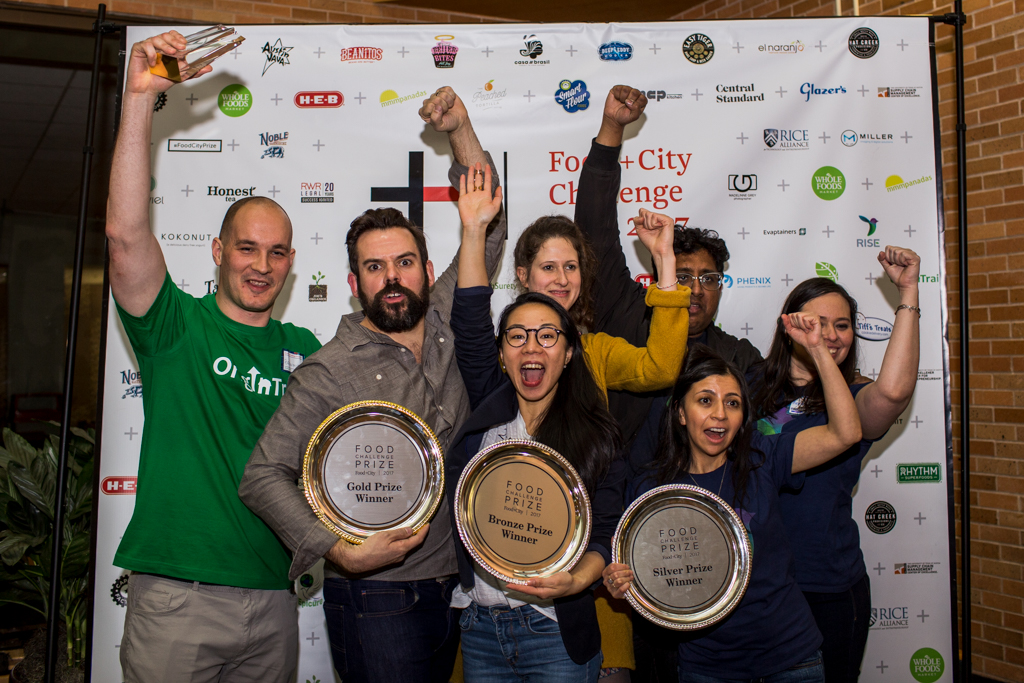

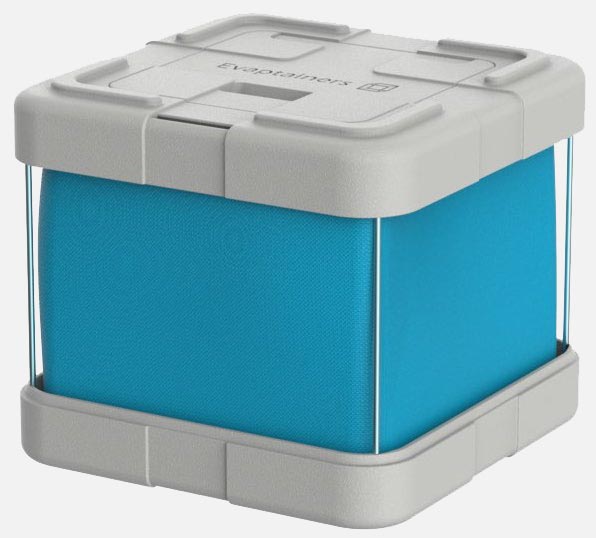
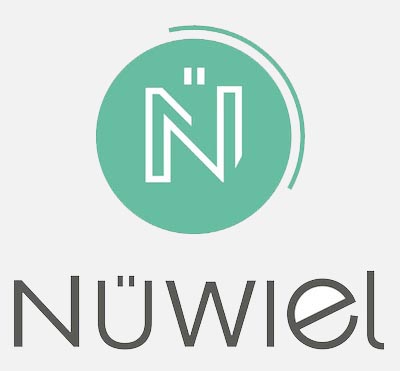
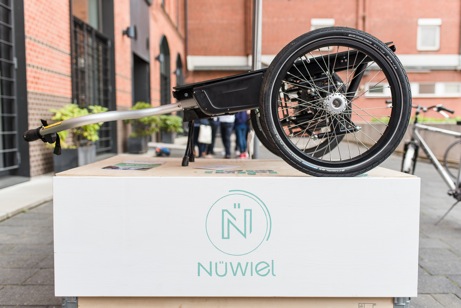
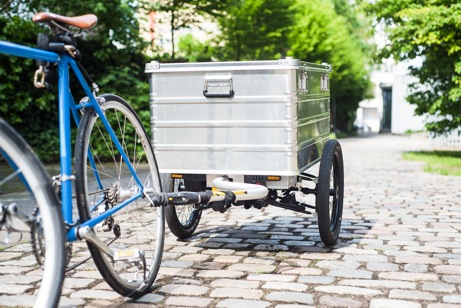

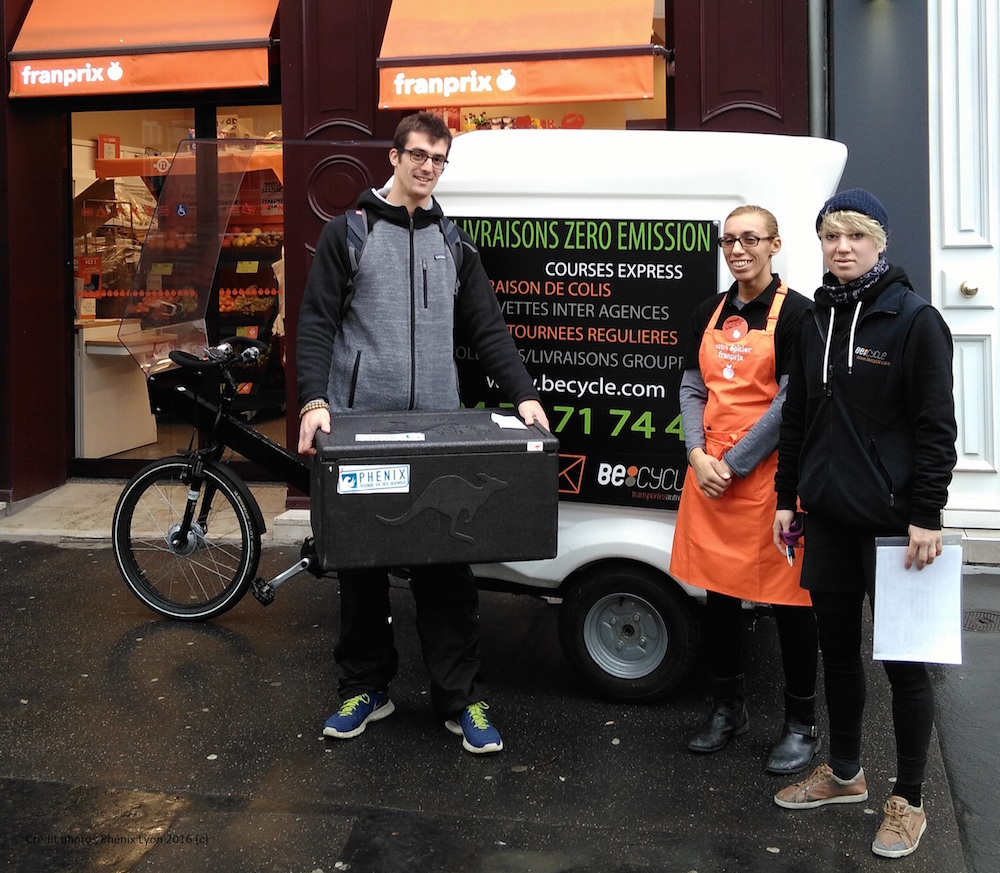
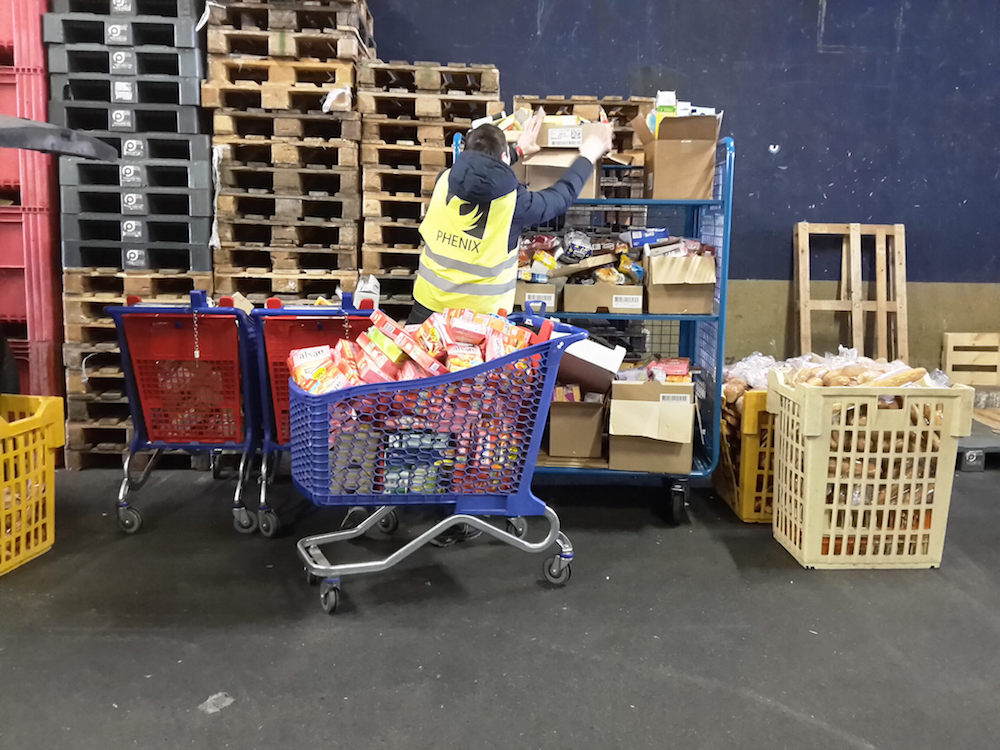

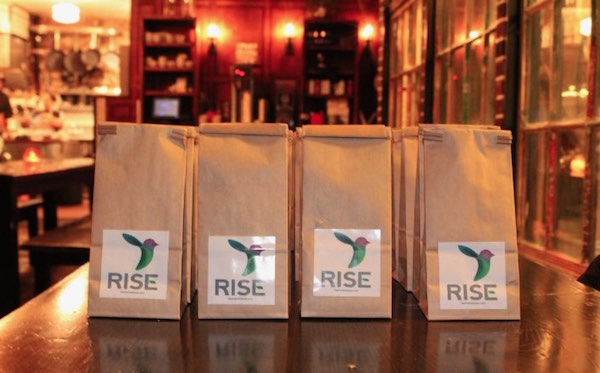

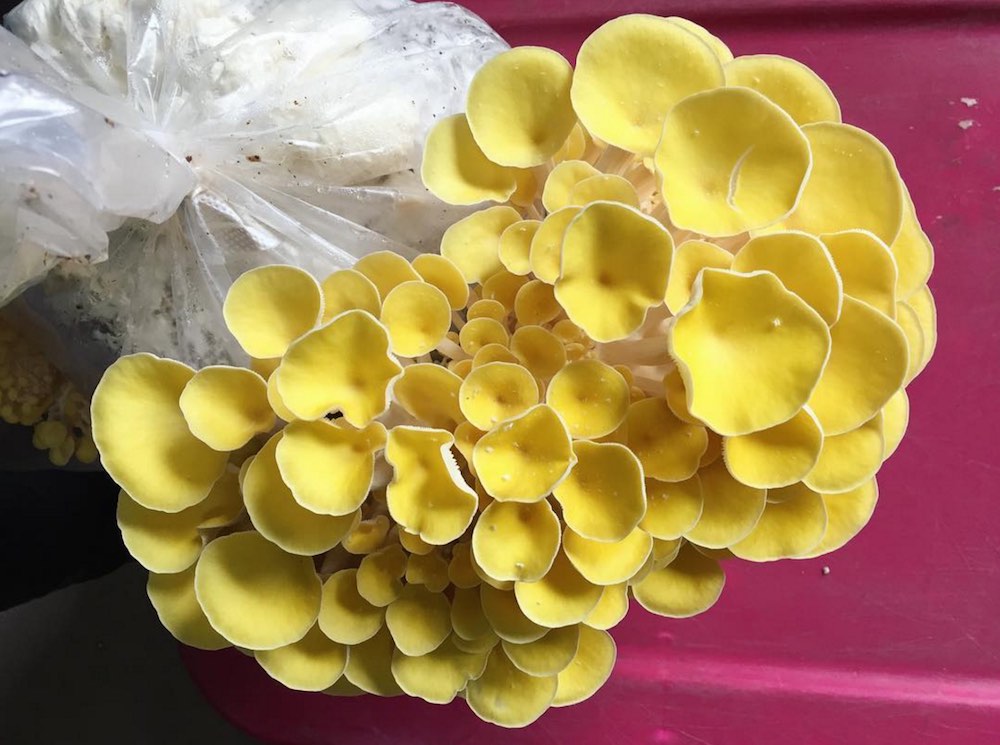

Author
Researcher, food nerd and self-proclaimed “bon vivant,” Cole is a graduate student at Tufts University studying sustainable food systems. Along with his passion for sustainability and entrepreneurial spirit, Cole’s keen interest in improving food systems drew him to Food+City’s mission of bold food supply chain exploration. You can often find Cole with his wife and young son — cooking, dancing, laughing and being outside.